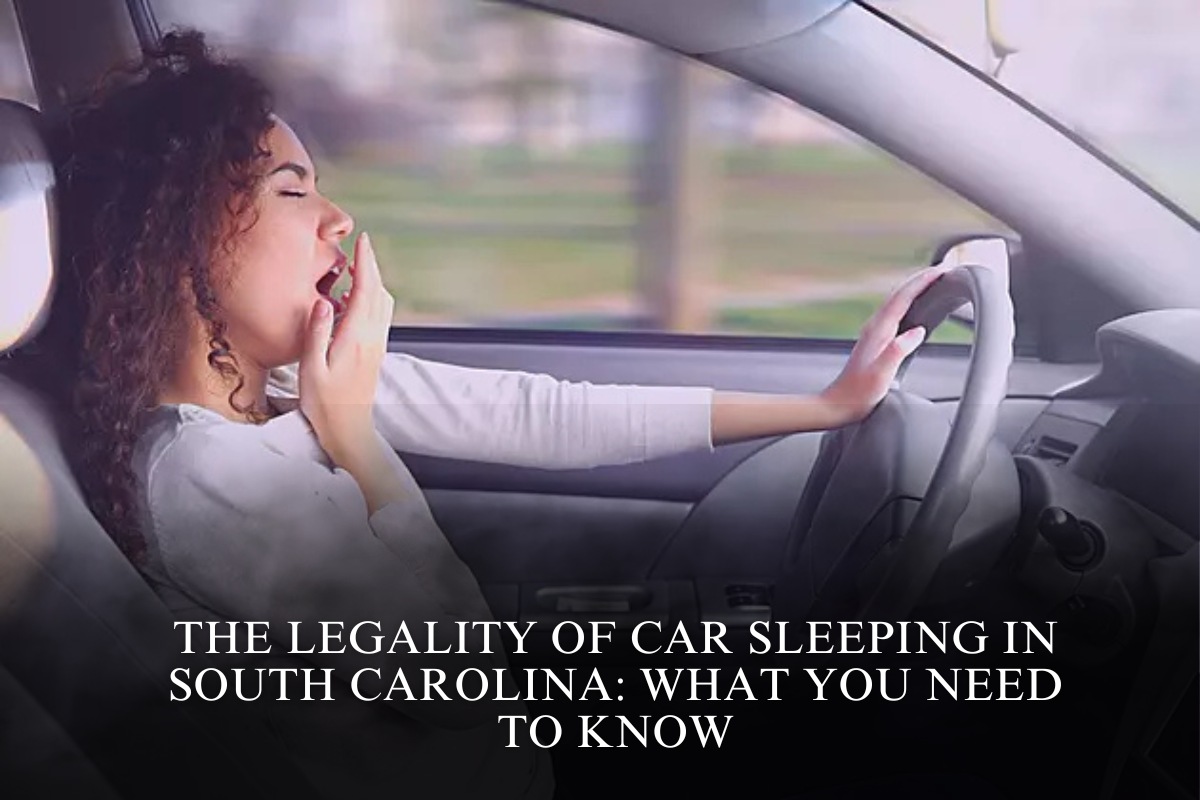Sleeping in your car is a topic that often carries a mix of necessity, convenience, and legal ambiguity across many states, including South Carolina. Whether it’s for rest during long road trips, an emergency stop, or circumstances like homelessness, knowing the legal framework and local ordinances is crucial before deciding to sleep in a vehicle.
This article explores the current legal landscape in South Carolina surrounding car sleeping, including where it is permitted, restrictions, and important considerations for anyone planning to rest in their car.
No Statewide Ban, But Local Restrictions Apply
South Carolina does not have a statewide law outright banning sleeping in vehicles. Unlike some states that have blanket prohibitions, South Carolina’s legislation does not criminalize sleeping in one’s car per se. However, this does not mean it is legal everywhere at all times. Local city and county governments can enact ordinances that restrict or prohibit car sleeping in certain areas such as public streets, parks, or rest areas.
For example, many municipalities disallow overnight parking or sleeping on city streets. Municipal codes often regulate how long a vehicle can be parked or stipulate no parking during certain hours, which effectively limits the possibility of spending a night inside a parked car legally. Violating these ordinances can lead to fines or towing.
Parking and Rest Area Rules
South Carolina’s rest areas generally prohibit overnight parking for sleeping purposes. Unlike some neighboring states that permit short-term rest breaks at rest areas, South Carolina often limits stays. Parking overnight at rest stops, especially for sleeping, is discouraged or illegal.
In addition, many public beaches and park access points in South Carolina strictly forbid sleeping in vehicles on site parking lots. These rules aim to prevent loitering and maintain public safety and aesthetics.
Private Property is Key
Sleeping in your car on private property with the landowner’s permission is legal in South Carolina, as is typical in most states. This includes parking in driveway areas, private parking lots where overnight stays are allowed, and other privately owned areas where permission has been obtained.
Travelers planning to rest overnight in their vehicles should seek permission from property owners when considering private property parking, including businesses like 24-hour stores or campgrounds.
No DUI Charges for Sleeping When Not Driving
An important legal clarification in South Carolina is that simply sleeping in a parked vehicle is not grounds for DUI (Driving Under the Influence) charges. Since DUI requires a person to be operating or driving the vehicle, being asleep with the engine off is generally not prosecuted as DUI. This differs from some states where officers may charge someone found asleep behind the wheel if the engine or ignition is on, even without movement.
Beware of Local Ordinances and Enforcement
Each locality in South Carolina can have unique rules regarding car sleeping. For example, city police may remove individuals sleeping in vehicles parked on public streets or private lots without permission, citing trespassing or loitering violations.
People who rely on car sleeping due to homelessness or travel are advised to research relevant local ordinances or connect with local shelters and social services for assistance. Enforcement may also vary depending on the time of day and neighborhood safety concerns.
Safety and Practical Considerations
From a safety standpoint, choosing well-lit, secure areas to sleep in your vehicle is paramount. Remote or isolated locations can expose individuals to theft, harassment, or accidents.
Practical measures like cracking windows slightly for ventilation, ensuring the vehicle is in a safe parking spot, and avoiding restricted zones help minimize risks. It is also wise to stay informed on weather conditions, particularly during South Carolina’s rainy or hot seasons, for safe resting conditions.
Alternatives for Overnight Stays in South Carolina
For those needing to sleep while traveling through South Carolina, several alternatives offer safer, more legal options:
Staying at campgrounds and RV parks that allow overnight parking.
Utilizing private parking lots with permission, including some 24-hour retail or gym parking.
Checking for designated rest areas that officially permit short-term rest stays (though these are limited).
Contacting local homeless service organizations and shelters in case of housing insecurity.
Using these alternatives reduces legal risks and improves comfort and safety for travelers and locals alike.
In South Carolina, sleeping in your car is subject to a patchwork of state and especially local rules rather than a sweeping state prohibition. While the state does not criminalize resting in vehicles outright, local ordinances frequently restrict or prohibit this practice in many public spaces.
Private property with owner permission is the most reliable legal option. Additionally, concerns about overnight parking restrictions, DUI laws, and public safety should guide decisions on where and when to sleep in a vehicle.
Given these regulations, it is vital for individuals to research local rules, seek permission when possible, and consider safer alternatives like campgrounds or shelters when needing to sleep overnight in South Carolina. Staying informed helps avoid fines, towing, or other legal issues and ensures safer rest for those in transit or facing housing instability.
Sources
(https://www.reddit.com/r/urbancarliving/comments/1ji0y65/in_south_carolina_is_it_illegal_to_sleep_in/)
(https://law.justia.com/codes/south-carolina/title-56/chapter-5/section-56-5-2530/)
(https://www.directauto.com/learning-center/driving-laws-and-safety/where-why-its-illegal-to-sleep-in-your-car)
(https://www.charleston-sc.gov/1025/Parking-Information)
(https://teamjustice.com/is-it-illegal-to-sleep-in-your-car/)











